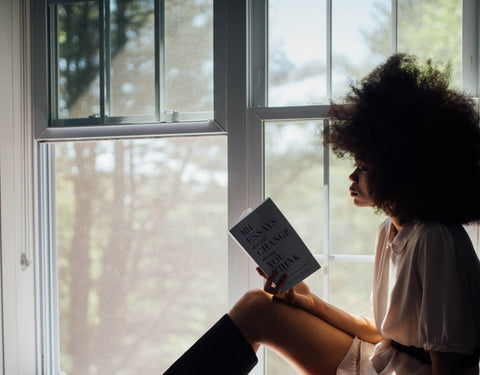Beauty through hair is a long-standing tradition in Black culture. The roots of using hair as a means of self-expression go back for centuries, and the evolution from tamed, protective styles to a world where Black women have begun freeing their hair – and themselves – is rich with stories of spending years manipulating, distorting and conforming before finally letting their hair be.
In so many ways, natural hair is mental health.
Embracing your own natural, whether that’s loose, luscious curls, tight tendrils, or zig-and-zagging kinks, is a beautiful and personal journey.
It hasn’t always been an easy one.
The History of Hair Discrimination
Dating back to well before emancipation, Black women have felt obligated to shelter their natural hair, turning to straightening, processing, subdued styling and countless other remedies and resources to “tame” their natural hair, masquerading it under the idea of making it more manageable. In reality, manageable meant conforming.
In school, in the workplace, and all throughout society, "puffy, frizzy, nappy, messy" were all terms that Black women, and often men, have had to struggle with on their personal hair journeys. You don’t have to look far for stories of women being discriminated against in their places of work – being told that their natural hair was, quite literally, not allowed. Women like Chastity Jones had job offers retracted when they refused to chop off their natural locks.
But in 2019, the CROWN act was enacted – Create a Respectful and Open World for Natural Hair – a piece of legislation that forbids organization and entities from discriminating against or trying to control Black and textured hair.
It was a huge leap, and one that has sparked a worldwide movement that is long overdue.
The Natural Movement
There has been a groundswell of Black women bidding adieu to chemical relaxers, tossing their straighteners out with the trash, and letting their hair live in its most natural form. The movement began to take shape as early as the 1960s, had a resurgence in the 2000s (when I did my own Big Chop), and now with the passing of the CROWN Act - and the continued pushes to combat discrimination - more and more women are becoming empowered to join the movement.
On the surface, the natural movement encourages Black men and women to celebrate their natural textured hair, but it runs much deeper into the self-expression and self-identification of members of the Black community. Natural hair is a path to letting us connect with our roots and free ourselves from being ashamed of our natural beauty. As Beyonce Knowles so eloquently says, “We were beauty before they knew what beauty was."
How we engage in the movement looks different for each of us. For women who have spent most of their lives relaxing and treating their hair in an attempt to manage it, transitioning to natural hair can be a complex and overwhelming journey.
But when we embrace our natural hair, our multidimensionality, and our right to express our raw beauty to the world, we lift up, empower, and validate Black women everywhere.
Our Commitment to Natural
To us, natural means what feels the most true to you. Every formula at UZIMA was designed by and for Black women to bring resilience to textured hair, so that you can grow it, show it, and own your natural all day, every day.
We have only just begun.


